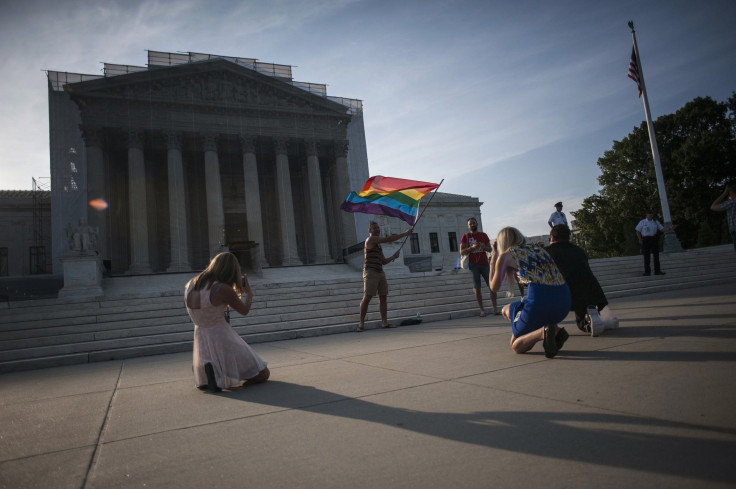Supreme Court Strikes Down DOMA -- For Better Or For Worse

The Supreme Court ended what was a far from stellar week for justice in this country with the decisions everyone has been waiting for -- on the federal Defense of Marriage Act, or DOMA, and California's Proposition 8.
With the court's decision to strike down DOMA, many lives are now validated, the feeling of hopefulness abundant. That validation is real, and should be honored. But there is much more to consider in the fight for full LGBT equality -- housing, workplace discrimination, health care and more -- and the DOMA decision should not overshadow the atrocities that the highest court in the land decided on this week.
Just like previous LGBT victories, this victory was coupled with a series of disturbing defeats. When the Matthew Shepard and James Byrd Jr. Hate Crimes Prevention Act was signed into law in 2009, it was attached to a vote on the National Defense Authorization Act, which allocated more money to the defense for a continued war that has seen a multitude of deaths of people of color abroad. When gay marriage originally became law in California in 2008, that day also saw a number of raids by the Immigrations and Customs Enforcement, or ICE, police that saw many people of color deported. Some of the deported worked at bakeries -- bakeries that could have made the very cakes gay men and women would have ordered for their weddings.
But while the Supreme Court struck down DOMA, it sided with sexual harassers and the bosses who retaliate against workers claiming discrimination. This ruling will no doubt disproportionately affect women and people of color.
Basically, the Supreme Court gutted the Voting Rights Act, allowing efforts at voter suppression to grow with wild abandon. This will affect people of color. And, of course, they effectively didn't rule on the future of affirmative action, even though whites are still twice more likely to enroll in college than people of color. In a ruling that trampled on the very same amendment used to strike down DOMA -- the Fifth Amendment -- the Supreme Court dealt a deadly blow to the right to remain silent.
Progress is not a linear phenomenon. While Martin Luther King Jr. claimed that the arc of the moral universe is long, but bends towards justice, I can't help but imagine that, much like the New Jersey highway system, it is long and bendy, often unnavigable, and set to turn you around in the wrong direction.
Yes, the striking down of DOMA is important, and must be celebrated, but just like an actual marriage, the love and affection that begins with a day-long celebration can only be sustained with hard work and vigilance. So, while today is the feast, let tomorrow be the day we put on our work boots, because while justice for those in the LGBT community who wish to enter into the legal contract of marriage is important, we should not forget those in our community who live on the streets, who live in fear of losing their job, who live in fear of harassment and who live in fear of expressing their gender identity.
And we must always remember that Martin Luther King Jr. was not only the leader of the African-American civil rights movement, but the leader of all civil rights movements. The best way for all communities to honor his memory is to understand the sturdy matrix that is systematic oppression, and the fight to dismantle it, so that liberty is something that can be enjoyed by everyone.
Mathew Rodriguez is a New York-based queer Latino writer, activist and the editorial project manager for TheBody.com, the web's most comprehensive HIV/AIDS resource. He is also a member of the New York City Department of Health's HIV Prevention Planning Group, or HPG. Follow him on twitter @mathewrodriguez.
© Copyright IBTimes 2024. All rights reserved.











